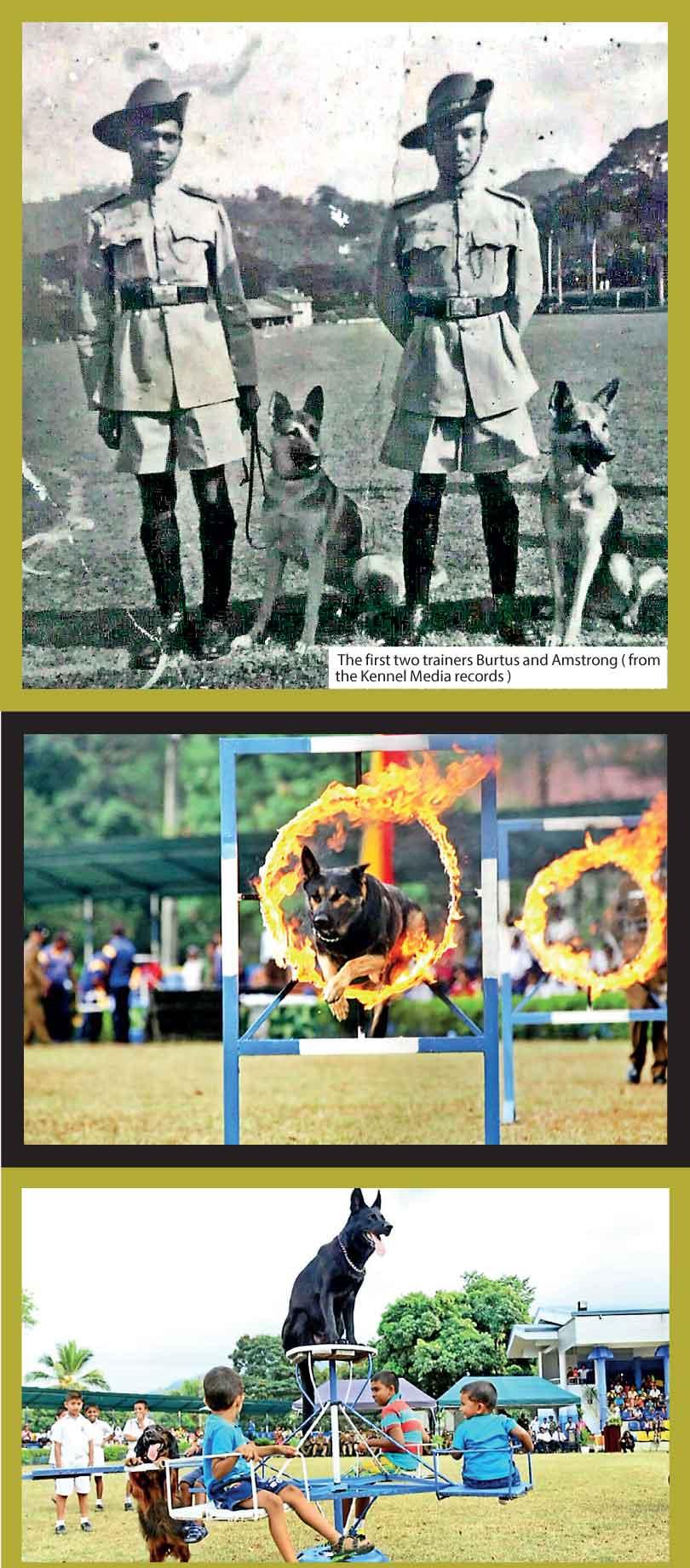Reply To:
Name - Reply Comment
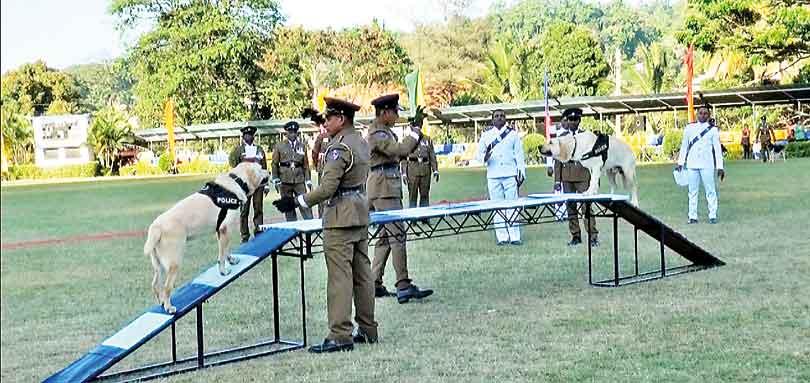
 When the Kennels of the Sri Lanka Police Service is celebrating its seventieth year in existence, it would be a timely opportunity to remember Sir Richard Aluvihare who revolutionized the Police Service. It was in his time that Sri Lanka Kennels were established in Colombo, in 1948 with German Shepherd Canine Sleuths Sheba and Rex trained locally by two Police constables Burtus and Armstong.
When the Kennels of the Sri Lanka Police Service is celebrating its seventieth year in existence, it would be a timely opportunity to remember Sir Richard Aluvihare who revolutionized the Police Service. It was in his time that Sri Lanka Kennels were established in Colombo, in 1948 with German Shepherd Canine Sleuths Sheba and Rex trained locally by two Police constables Burtus and Armstong.
Sir Richard had seen Army life while he was attached to the British Army who was fighting a war with the Second Boer War and Sir Richard was stationed in Middlesex. After his retirement with the end of the Boer War he was commissioned to the Ceylon Civil Service where he served in various capacities across the country, including as the Police Magistrate. With Independence he was recruited to the Civil Service by Late D.S. Senanayake and went on to become the first Ceylonese Inspector General of Police after Col. P. N. Banks who left the country during that time.
Though many tried to say that Sir Richard was a civilian, he was a military man with experience in civilian administration before he took over the Police Force, which he transformed to the ‘Police Service’ as we know it to be today, together with the Late D.S. Senanayake. There are a number of firsts to his credits in its transformation.
When this scribe met Sir Herbert Dowbiggin in Ipswich a few months before he died in the southern part of the United Kingdom, he said that it was a man like Sir Richard who could have brought about a service to serve the people. He said he as Inspector General of Police was only looking after the interests of the ruling Government and always protected the Government in power. But, Sir Richard has better task to protect his people. That is then the difference, he added.
there are no particular breeds that are suitable, but one fits to one job and heavy weights like German Shepherd’s are used for detection of narcotics, since they are slow moving and gets on to the assignment with zest
Sir Richard Aluvihare’s first task was to remove the Police Force into “Police Service” and to install long mirrors in every Police Station, so that those Policemen going out on duty could look into their figure and also their uniform and perhaps also to say, ‘I am going out to serve my people without any bias’.
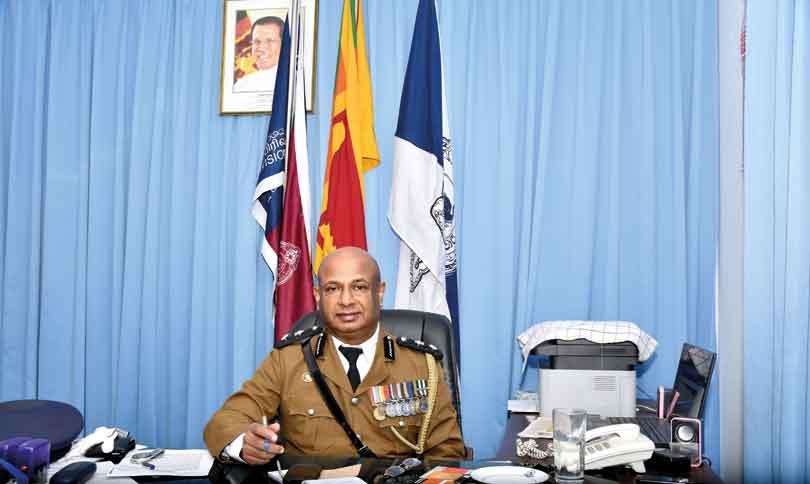
It is because of Sir Richard that the modern housing scheme for Policemen was constructed with the approval of the first Prime Minister of Sri Lanka, Privy Councellor D. S. Senanayake. If not for Sir Richard there would never be a housing scheme, with its first houses built in Bambalapitiya. The first to be declared open was No. 4 of ‘B’ Block by the Prime Minister D.S. Senanayake, which had two bedrooms, one sitting room, dining room, a toilet, shower and a kitchen with an electric stove - what more compared to the Police quarters at Maradana - dingy affairs.
Likewise, Kennels were established and today Kennels of the Police Service are celebrating their 70th year of existence. It has made its mark, comparable to any service in the world and the men devoted to their duty.
The Kennels were first established at Colombo in 1948 and shifted on to Kandy in 1949 because trainers like Armstrong who was a Parachutist recruited from the Army. He felt that the climate and the presence of the Faculty of Veterinary Medicine could help the Canine Sleuths for a better way of training. Later Police Officers were trained abroad and the largest number of Canines that were brought into the country was one hundred at one time, that was in 2011. The present Director Seneviratne had been trained in India and Australia. When this scribe met him at the Kennels based at Asgiriya. He said the present Kennels is situated at the former Trinity College farm premises and then the land was acquired for Kennels and today it is a fully fledged Training Centre for Canine sleuths who are trained as second to none.
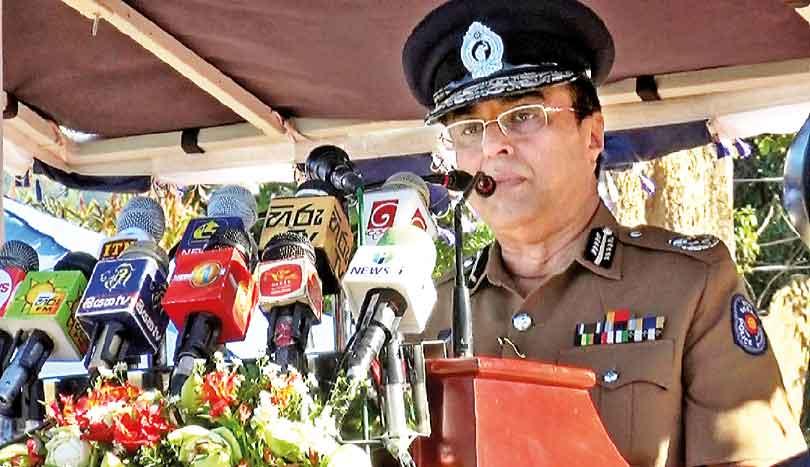
According to Director Seneviratne there are 350 handlers and 10 Female officers as handlers. He said that there are no particular breeds that are suitable, but one fits to one job and heavy weights like German Shepherd’s are used for detection of narcotics, since they are slow moving and gets on to the assignment with zest. The Cocker Spaniels are been used for deployment to check vehicles as they could get about easily. Each Canine sleuth fits to one deployment and the training of them is the special feature in their ability to secure what is needed.
The Police Kennels though in Kandy has sub-stations attached to various important Police Stations and Veterinarians had gone with Police officers to select Canine’s for the need of the kennels.
It is no easy task for the Police to train these sleuths, said its Director Sarath Seneviratne. When the scribe met him at at the Kennels, all facts were at his finger tips and went on to say that the Kennels had bought 45 Canine’s to be trained as sleuths in 2018, from Netherlands on October 20, 2018 bought under tender from those who supply dogs for Police throughout the world. In 2011 45 Canine sleuths were bought into the Kennels for training for Narcotics and they are sometimes used in Airports and other areas which they feel they are needed. In additional the canine sleuths are also at various important security assignments.
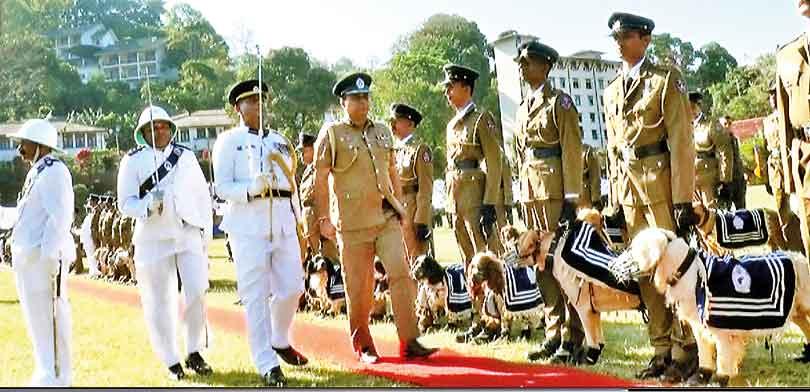
The Kennels were first established at Colombo in 1948 and shifted on to Kandy in 1949 because trainers like Armstrong who was a Parachutist recruited from the Army
The word Canine sleuths derives from the word canine investigators as they were known in 1872. These canine sleuths have 330 million cells for smelling while humans have only 6 million. The other difference is that they have pheromones or smelling buds which differs from one human to another, and these differ like finger prints. It is with these devices that the canine sleuths are able to track down offenders.
At the time of this scribe’s visit there were 82 canine sleuths, while the others have been deployed at various places.
Unlike in the initial stages there is an in-house Veterinarian and those canines who cannot be treated there are taken to the Faculty of Veterinary Science and Medicine at the University
of Peradeniya.
